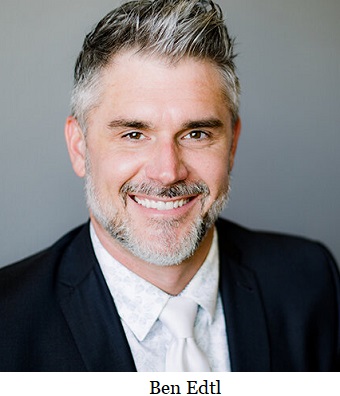





| Benton County Republicans’ Private Fundraising Event, “Bent-on Boots and Bling” with Trey Taylor |
| Friday, September 5, 2025 at 5:00 pm |
| Featuring Trey Taylor Music Private Event Friday, September 5, 2025 5:00-5:30 pm VIP Reception 5:30-8:00 pm Heavy Appetizers, Auction, Concert Red: $750 VIP Reception Front Row Table Sponsor White: $500 Table Sponsor Blue: $50 per person Limited Seating. Get Yours Now!!! Support Local Dress up: Bling, Cowboy, Patriotic Benton County Republican FUNDRAISER www.BentonGOP.org Get your tickets today at: https://www.bentongop.org/event-details/benton-county-republicans-fundraiser/form About Trey: Trey is the youngest African American Man in Country Music History. The Denver Post wrote "It's impossible to miss his enthusiasm. With a fondness for cowboy boots, gaudy colors and dazzling jewelry, Trey Taylor could stand toe to toe with any of the Pop, Country or even Rap contemporaries of his generation.“ |
| Trysting Tree Golf Club, 34028 NE Electric Rd., Corvallis |

The issues presented in this case turn on what are arguably some of the most impactful and harmful temporary administrative rules that have ever been adopted by an agency because they force potentially hundreds of thousands of individuals to undergo a medical treatment against their wishes or else be deprived by a state actor of their job, their income, and their very means of livelihood. A failure to stay these Rules will leave Petitioners and those individuals without the ability to provide for their families. The Petitioners have filed an emergency motion because Petitioners, together with hundreds if not tens of thousands of other Oregonians, will be imminently terminated from their public and private employment in their chosen professions unless they subject themselves to the false choice of succumbing to an unwanted, intrinsically coercive, unreasonable medical intervention with unknown long-term risks, that is likely in violation of state and federal law, the Oregon Constitution, and the United States Constitution. The United States Supreme Court has ruled that a “forcible injection … into a nonconsenting person’s body represents a substantial interference with that person’s liberty[.]â€
Ben Edtl, director of Free Oregon, the organization which supported the lawsuit said, "We argued that the COVID-19 vaccines are experimental and not FDA approved and, therefore cannot be mandated according to the Emergency Use Authorization. We even provided the court with the actual FDA “approval†of the Comirnaty vaccine, to prove our point, alongside the federal government’s EUA. She says the State isn’t mandating which vaccines are to be taken, just that nurses, teachers and government workers must be vaccinated against Covid-19."The likelihood of success factor, together with the risk of harm to the public if a stay is granted, dispositively weighs against granting a stay in this case. Even assuming that petitioners have made a sufficient showing that they will be harmed if a stay is denied, and despite petitioners' urging that the public will be harmed by the vaccine mandate itself, the court agrees with the state that a stay would be harmful to the public. As all involved are aware, this case arises during a pandemic. Since its emergence, the coronavirus has spread throughout the world and COVID-19 has caused hundreds of thousands of deaths in this country. As the rules themselves state, healthcare workers generally have contact with many patients, including those who are "more likely than the general public to have conditions that put them at risk for complications due to COVID-19," and "[c]hildren are required to attend school, which is a congregate setting where COVID-19 can spread easily if precautions are not taken."
A D V E R T I S E M E N T

A D V E R T I S E M E N T
According to OHA, requiring workers in healthcare settings and schools to be vaccinated is an effective way to increase vaccination rates and thereby help control COVID-19 and protect the citizens of this state. The state clearly has a strong interest in protecting the general public from the spread of COvID-19, and the rules in question are directly aimed at accomplishing that goal. As the Supreme Court said much earlier in the course of the pandemic in Elkhorn Baptist Church v. Brown, although there "have been and will continue to be debates about how best to respond to the threat posed by the coronavirus," to "the extent that those debates concern policy choices they are properly for policymakers." The executive branch is "uniquely situated, and duty bound, to protect the public in emergency situations and to determine, in such emergencies, where the public interest lies. Given the public interests at stake, and the seriousness of the harm caused by the spread of the virus, the court determines that the risk of harm to the public if a stay is granted is significant.
Ben Edtl mocked the decision. "It’s not a mandate, you just can’t work. It’s not a mandate, you just can’t go to the grocery store. It’s not a mandate, you just have to stay in your house. It’s not a mandate, you just can’t leave the government internment camp." Edtl assures that "Our case will continue to a judge with a reconsideration filing, but based on this decision by Kidd it will be heard after Monday’s October 18, 2021 deadline."| Post Date: 2021-10-17 11:11:21 | Last Update: 2021-10-17 12:01:33 |